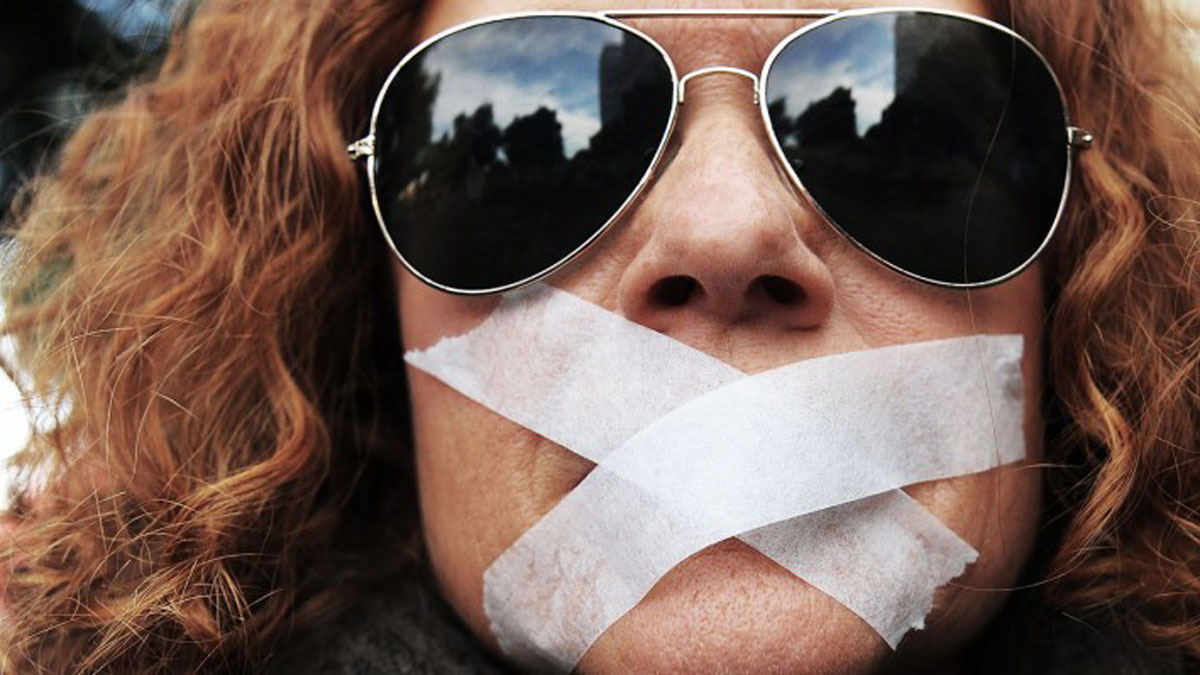UK universities 'are attacking free speech', says report
Increase in prohibitions sees campuses censoring speakers, songs and newspapers

A free daily email with the biggest news stories of the day – and the best features from TheWeek.com
You are now subscribed
Your newsletter sign-up was successful
The principle of free speech is under attack at British universities, according to new research, with serious restrictions being placed on expression at more than half of campuses last year.
Freedom of Information requests and analysis of student-union policies conducted by online magazine Spiked showed that out of 115 universities, 55 per cent had banned speakers, pressure groups, types of behaviour, songs and hand gestures, up from 41 per cent in 2014.
A breakdown of the findings reveals some form of curb on free expression in place at 90 per cent of campuses, up from 80 per cent the year before. Policies barring "extremist speakers" were enacted at 39 per cent of institutions, while 42 per cent had a "dignity" policy that banned offensive jokes, comments or songs.
The Week
Escape your echo chamber. Get the facts behind the news, plus analysis from multiple perspectives.

Sign up for The Week's Free Newsletters
From our morning news briefing to a weekly Good News Newsletter, get the best of The Week delivered directly to your inbox.
From our morning news briefing to a weekly Good News Newsletter, get the best of The Week delivered directly to your inbox.
"Campus bureaucrats don't even trust students to dress themselves, let alone think for themselves. Campus censorship has become institutionalised," said Spiked's research co-ordinator Tom Slater.
The Independent has labelled censorship "endemic" on campuses, naming the London School of Economics and the universities of Aberystwyth, Edinburgh and Leeds among the worst offenders.
Student unions are almost four times more likely to censor behaviour than universities themselves, with targets including tabloid newspapers, satirical magazines including France's Charlie Hebdo and songs such as Robin Thicke's Blurred Lines, as well as sport societies branded sexist and homophobic.
Last year, the University of East Anglia's student union placed a ban on The Sun newspaper, sombreros and the institution's hockey team after it played a game of "gay chicken", notes the Huffington Post. In October, students at Cardiff attempted to bar feminist writer Germaine Greer for what it called her "unacceptable transphobic views".
A free daily email with the biggest news stories of the day – and the best features from TheWeek.com
While the Greer ban was absurd, said Hugo Rifkind in The Times, such actions should be seen in the context of the vicious nature of debate on social media, which surrounds today's students in a way previous generations may not understand. "Our young lives were bubbles we took pride in puncturing," he wrote. "Theirs, already, are battlefields they want to build bubbles around."
Last month, a group of leading academics warned students were being denied the opportunity to debate conflicting views due to political correctness and censorship. In a joint letter to the Daily Telegraph, academics argued students were "killing free speech" by banning anything that caused offence. Administrators now see the students as customers, the academics added, and therefore "dare not stand against them".
The ongoing debate about whether to remove a statue at Oxford's Oriel College of Cecil Rhodes, regarded by some as the founding father of apartheid in South Africa, has also drawn sharp criticism, with some arguing that taking it down would set a dangerous precedent of rewriting history to suit the prevailing views of the time.
-
 The President’s Cake: ‘sweet tragedy’ about a little girl on a baking mission in Iraq
The President’s Cake: ‘sweet tragedy’ about a little girl on a baking mission in IraqThe Week Recommends Charming debut from Hasan Hadi is filled with ‘vivid characters’
-
 Kia EV4: a ‘terrifically comfy’ electric car
Kia EV4: a ‘terrifically comfy’ electric carThe Week Recommends The family-friendly vehicle has ‘plush seats’ and generous space
-
 Bonfire of the Murdochs: an ‘utterly gripping’ book
Bonfire of the Murdochs: an ‘utterly gripping’ bookThe Week Recommends Gabriel Sherman examines Rupert Murdoch’s ‘war of succession’ over his media empire